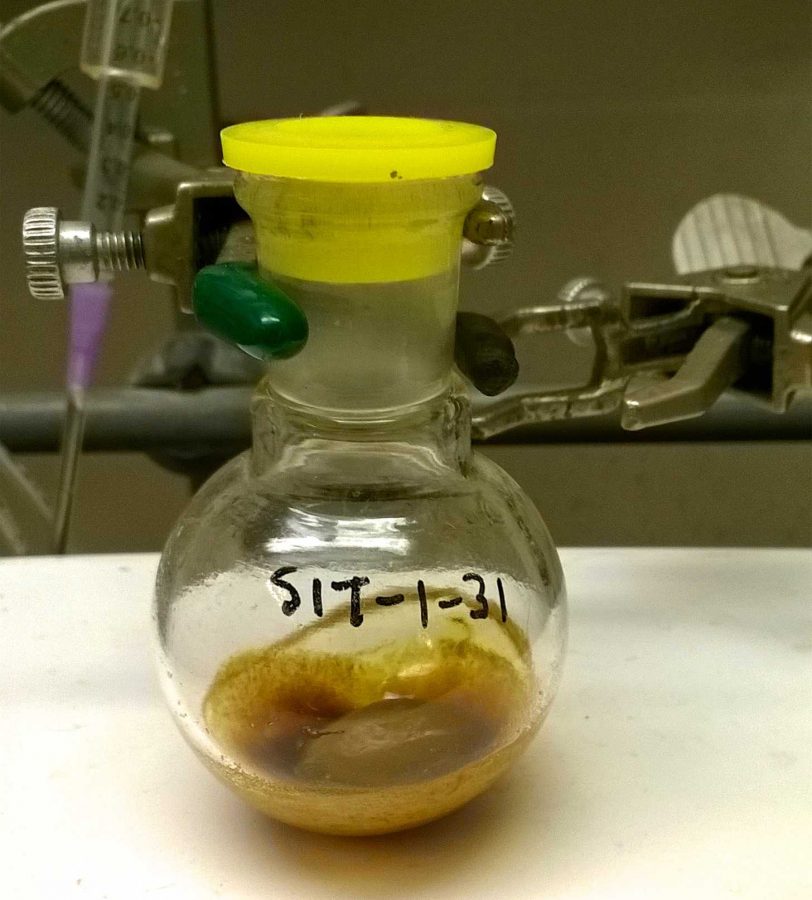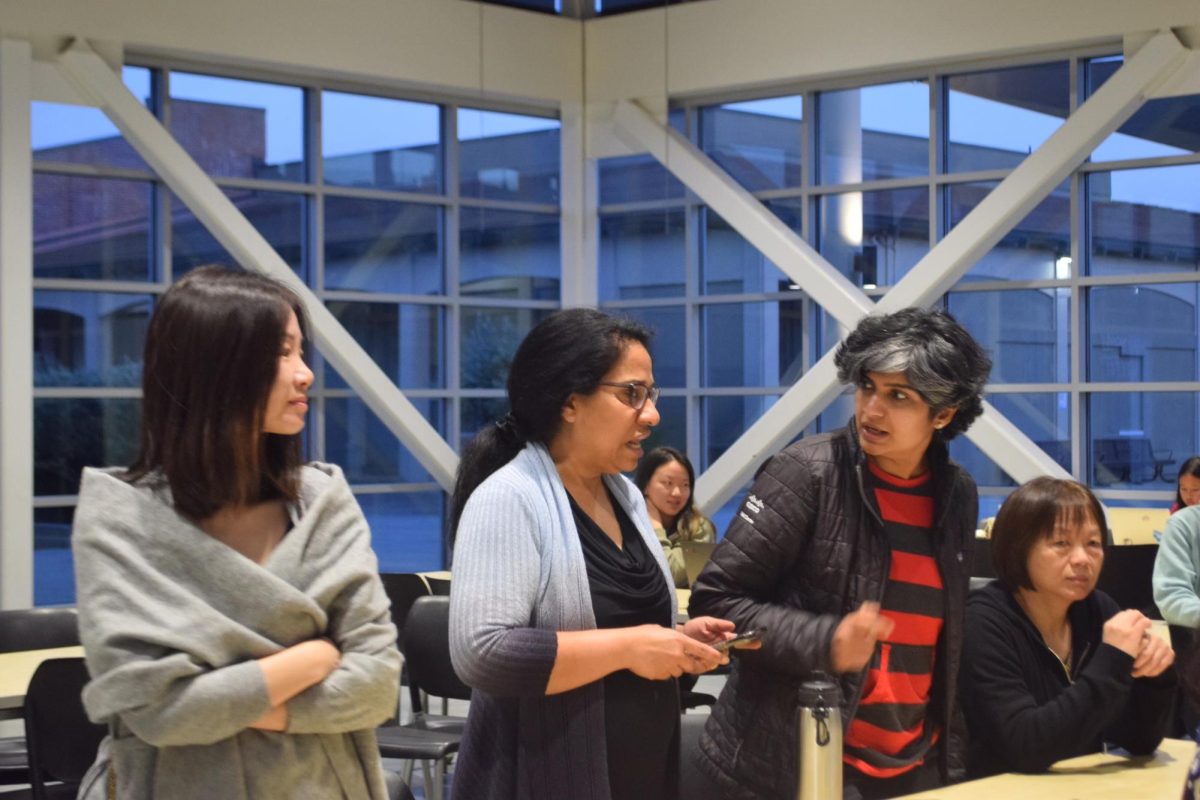
hile learning new and difficult content, many MVHS students often ask themselves, “When will I ever actually use this information in the future?”
MVHS alumnus and current Stanford University student Stephen Ting has an answer, in terms of chemistry to that question: Yes, you will.
Although classes in college help build upon what students already know, Ting believes that the information he learned in his high school AP Chemistry class, such as the importance of substance composed of carbon, was the foundation of what he needed to know while working at the Du Bois Laboratory at Stanford.
The silver medalist of the International Chemistry Olympiad spoke in AP Chemistry teacher Kavita Gupta’s classroom, discussing how drug design depends on molecular structure. Learning how to modify these structures can help create a beneficial drug.

- This is the purified product from a chemical reaction. Ting and his colleagues conducted the experiment at the Du Bois Laboratory. Used with permission of Stephen Ting.
“How can I come up with what looks sort of like what I originally had,” Ting said. “But doesn’t behave like it?”
This is one of the most common questions that Ting and others ask when experimenting with chemical substances.
An example Ting provided was the various pain medications made from the opioid plant. But because opioid is so addictive, it can be harmful in terms of substance abuse. To fix such problems, labs like the Du Bois Laboratory can use known information to create more useful and effective pain medication.
According to junior Mahima Parashar, a student currently taking AP Chemistry, there are some rather strong similarities between what Ting discussed and what she learned in class.
“I could still see a lot of similarities, even the way the structures are formed and how they used that notation,” Parashar said. “I did end up seeing that later on.”
In his presentation, Ting used various examples of molecules, bonds and molecular interactions to to simulate a scientist’s way of thinking. By asking how to modify certain structures to induce a certain behavior, students like Ting experiment with man-made and organic substances to come up with new drugs.

In addition to describing his research, he addressed the topic of stress and how it pertains to MVHS students. He believes that while grades seem to be of utmost importance to students, they should be prioritized with a limit.
Chemistry teacher Kavita Gupta agreed, adding that while grades are important in an academic environment, actual learning is what will affect lab work or any other job scenario.
“There’s a threshold,” Ting said. “You want to be driven enough that like it’s good for you and that you’re learning things but there’s a point beyond that, when you know, stress is just stress.”








